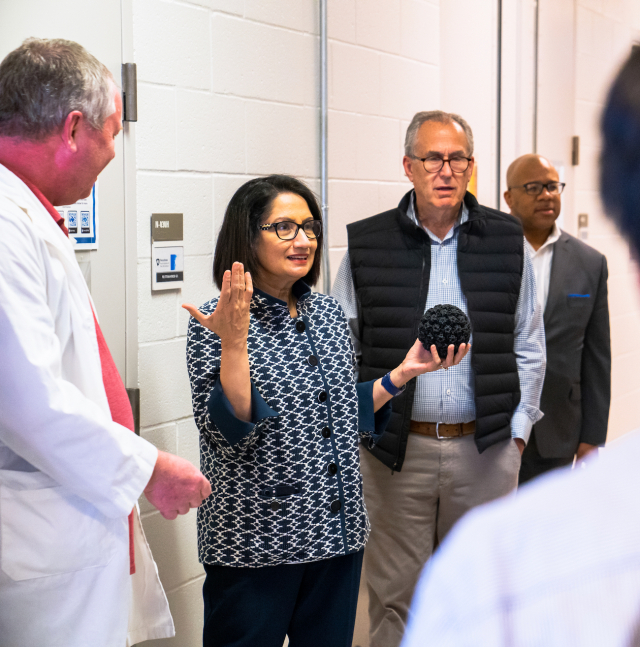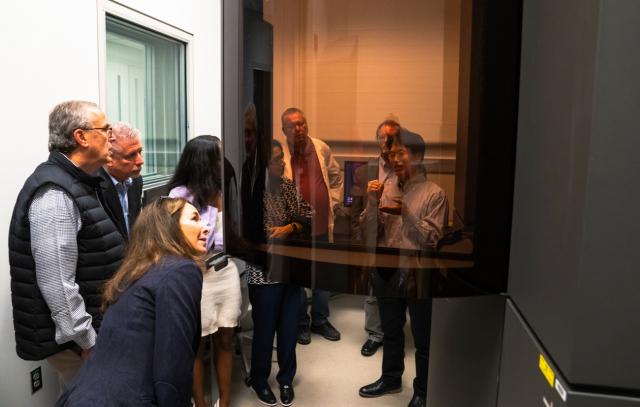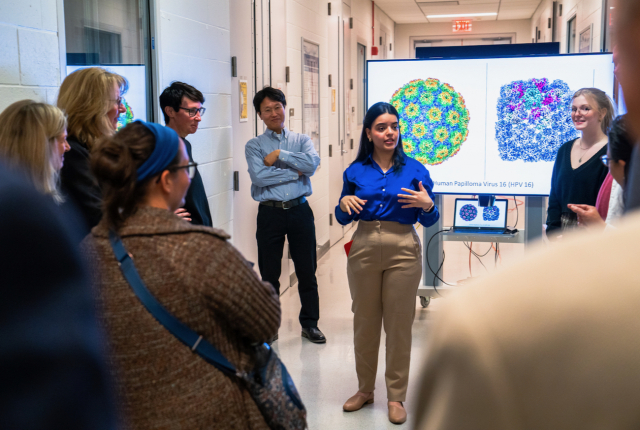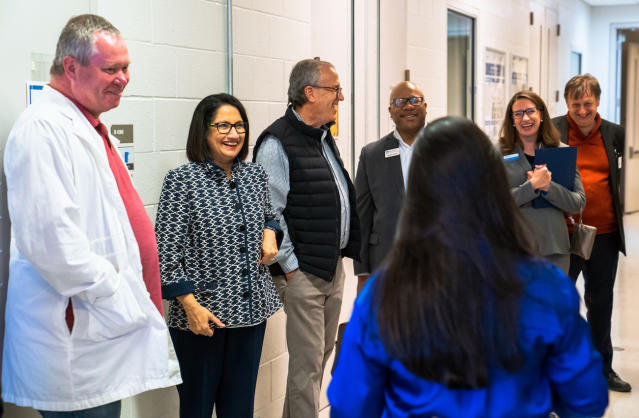Board of Trustees, President Bendapudi Tour Huck Facilities
Cutting-edge instrumentation, student passion for research inspires university leadership.
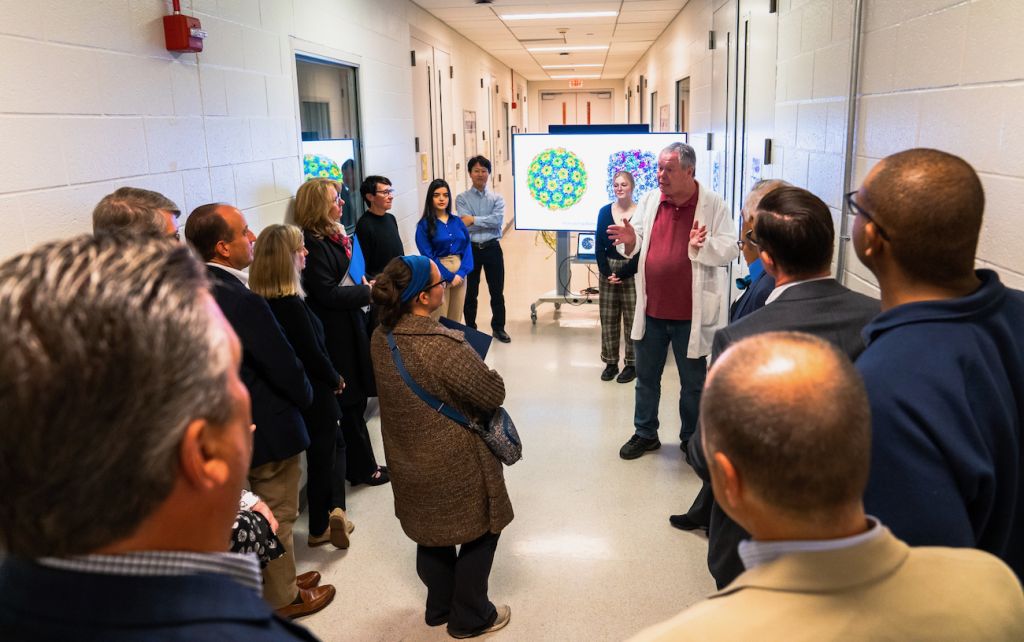
UNIVERSITY PARK, Pa. — On Nov. 10, 2022, Penn State’s Board of Trustees, along with university President Neeli Bendapudi, ventured below ground to explore the world-class instrumentation facilities housed beneath the Millennium Science Complex.
Huck Institutes of the Life Sciences director Andrew Read partnered with Materials Research Institute director Clive Randall to orchestrate an experience designed to give their guests an opportunity to see what the convergence of their scientific disciplines looks like, up close and personal.
During the tour, several presentations were delivered by members of the Huck research community.
Huck Director of Research instrumentation Nigel Deighton provided a broad overview. Assistant Research Professor Sung Hyun (Joseph) Cho provided details on Penn State’s one-of-a-kind Cryo-Electron Microscopy Core Facility. Huck Chair in Molecular Biophysics and Professor of Biomedical Engineering Deb Kelly described the ground-breaking cancer research made possible by these instruments. And Penn State grad student Maria Solares (Ph.D. Candidate, Molecular, Cellular & Integrative Biosciences) and undergrad Tatum Cutler (Biochemistry/Molecular Biology) received a warm and enthusiastic welcome from the tour participants as they told personal stories of their work in the facilities.
Solares’ presentation, in particular, struck a powerful and emotional chord with the crowd, as she described how personal losses she suffered in youth inspired her to do the work she is currently pursuing at Penn State.
“I often share my research and findings with others, but telling the story behind why I do cancer research? That’s a rare occasion,” said Solares. “It was wonderful connecting with members of the board on a deeper emotional and human level. In that moment, we were celebrating not just Penn State’s cutting-edge research, but also the memory of those who have passed from cancer and their positive impact on our lives.”
Deighton, who regularly gives tours of the facilities to a wide range of audiences, was also delighted to have the opportunity to show off Penn State’s best-in-class capabilities to this particular group.
“It was so nice to show the impact that this investment, originally authorized by the BoT, has had,” he noted. “Our researchers—faculty, students, and staff alike—have repaid their faith.”
